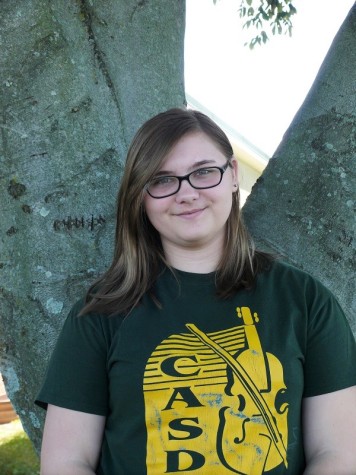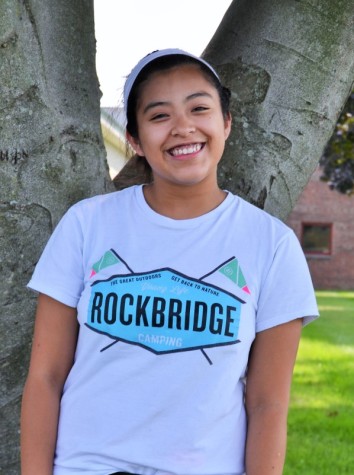Ice Bucket Challenge cures common stereotypes along with raising money (Editorial)
Besides just participating in the ALS ice bucket challenge, most people offered to donate a dollar for every “like” they got on social media websites
The summer of 2014 birthed a revolutionary movement as people banded together internationally to participate in a never before seen movement. This movement was widespread on Twitter, FaceBook, and documented on national news stations under the name and hashtag “ALS Ice Bucket Challenge.”
Many CHS students participated over the summer whilst watching their favorite celebrities take part as well. A large percentage of participants, however, know next to nothing about Lou Gehrig’s disease except that they were tagged to dump cold water over themselves on camera.
The simplistic challenge was initially started in an attempt to raise awareness about the disease affecting thousands of innocent Americans and hopefully boost research funding. The ice bucket aspect was designed to be an entertaining way to raise money as well as increase general public knowledge. There is no cure at the moment for this often fatal disease, but unfortunately that is not the only way it changes the lives of those suffering.
Those living with this disease lose the ability to properly control their muscles and are often left paralyzed as the nerves in their brain and spinal chord degenerate. Because so little is known about Amyotrophic Lateral Sclerosis, it is difficult to develop a medicine that can work for all the unique cases.
According to the U.S. Department of Health and Human Services and the National Health Institute, ALS research in recent years has received a minute fraction of the funds given to that of more well known diseases and disorders (particularly cancer although there is absolutely nothing wrong with cancer research being funded!) and this is due to the publicity of these illnesses. People regularly donate to cancer institutes or children hospitals and that is a great thing, but that overlooks many other diseases where people suffer sometimes a lot more.
As the challenge became more popular, many people over social media decided to make it their business to complain and post hate. They argued the spotlight on ALS was unfair to many other sicknesses, each uniquely arguing that it is important for other ailments to receive equal publicity and funding. These statements deeply frustrate me because the speakers say nothing about other diseases that are in the limelight year round but they find it suddenly acceptable to bash a deadly problem just because more people are talking about it than usual. I do not understand how it is worth it in any way to talk negatively about something that ruins and ends lives all across the world just because someone might not have a personal connection or reason to believe in the movement.
I was honestly quite proud of what was accomplished in such a short amount of time, especially because it was a positive thing done through social media and that in itself is a rarity. I do not understand how it could be seen as a terrible thing that funding and attention was brought to ALS for the season when all the movement did was help people and their families. According to the ALS Association (ALSA), the ice bucket challenge alone raised around $22.9 million as of August 19 and that is something in which people should be proud.
Many CHS students participated in the ALS Ice Bucket Challenge. Read more about their experiences in our article, CHS students participate in Internet craze for a good cause.
Disclaimer: Articles designated as “Editorial” represent the views and opinions of the author, not the 2014-2015 Periscope staff, CHS Administration or the CHS student body.
Want to help the Herd? Please consider supporting the Periscope program. Your donation will support the student journalists of CHS and allow us to purchase equipment, send students to workshops/camps, and cover our annual website hosting costs.

Anna is a tenth grader at CHS and this is her first year on Periscope. She is in charge of managing the online polls, as well as writing for the Perspectives...

This is Clara Cozort's third year on staff for Periscope! Clara has taken on the roll of being Art Director and Co-Director of social media. While she...





























































































Mackenzie Weary • Oct 31, 2014 at 11:01 am
I thought the ice bucket challenge was a great way to raise money for this disease. I did not participate, but it was interesting to see everyone do it.
Bry Youtzy • Oct 29, 2014 at 11:01 am
The ice bucket challenge is something I got involved with over the summer and I really enjoyed doing it.
Julia Pantleo • Oct 24, 2014 at 1:34 pm
It is really interesting that you chose to write on this, especially since almost everyone reading this has either seen or done the ice bucket challenge.
Michaela McQuaig • Oct 24, 2014 at 11:50 am
I agree with Kayla and Jack. Excellent article, and an amazing movement to be involved in- I participated in it, as I had a neighbor who suffered from ALS. Such a sad disease, but raising awareness is an important step.
Jack Davenport • Oct 1, 2014 at 2:31 pm
The Ice Bucket Challenge was definitely a great idea for the promotion of ALS. It was simple act, one that did not take much effort, and even though the feeling of shivering ice down one’s back most likely was not relaxing, it certainly reminded everyone that 30 seconds of cold is nothing compared to what patients of ALS go through every day.
Kayla Hallman • Oct 1, 2014 at 12:22 pm
I love this article and completely agree with you!! It is well written and I too was very frustrated with people complaining about the ice bucket challenge.